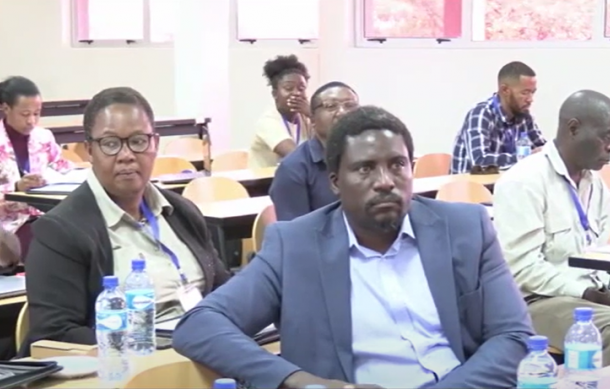
Universities within the Kavango-Zambezi Transfrontier Conservation Area (KAZA TFCA) are meeting for a three-day research collaborative forum.
The academic community is discussing ways in which they can contribute to the KAZA TFCA through advanced research for developmental purposes.
Speaking at the opening of the meeting, the KAZA Secretariat's Executive Director, Dr. Nyambe Nyambe, emphasised the necessity and significance of academic support across all facets of the organisation's objectives.
"There is a great opportunity for universities to contribute to the different objectives of KAZA by way of producing new knowledge and advancing research, so KAZA has a lot of research opportunities around species, livelihood, and issues of economic development, around fisheries, basically in all aspects, and this is important for purposes of generating knowledge to inform decisions, policies, and strategies."
Various participants made presentations detailing the current status, gaps, and potential remedies for research initiatives within KAZA.
UNAM's Vice-Chancellor, Professor Kenneth Matengu, emphasised the critical need to formulate a research agenda that directly addresses challenges within KAZA.
These challenges encompass areas such as health, climate change, human development, agriculture, and the environment.
"We must try to create systems that are not dependent on donors; we must be able to produce evidence that allows us to create local capabilities that assure the sustainability of what we do; we have seen so many good ideas and good projects in all our country's collapsing because there is no suitability, and so it is really important that we begin with empowering."
Delegates attending the forum will undertake site visits to observe the expansion of UNAM's Katima Mulilo campus for the Department of Wildlife Management and Tourism Studies, along with the existing structures.





